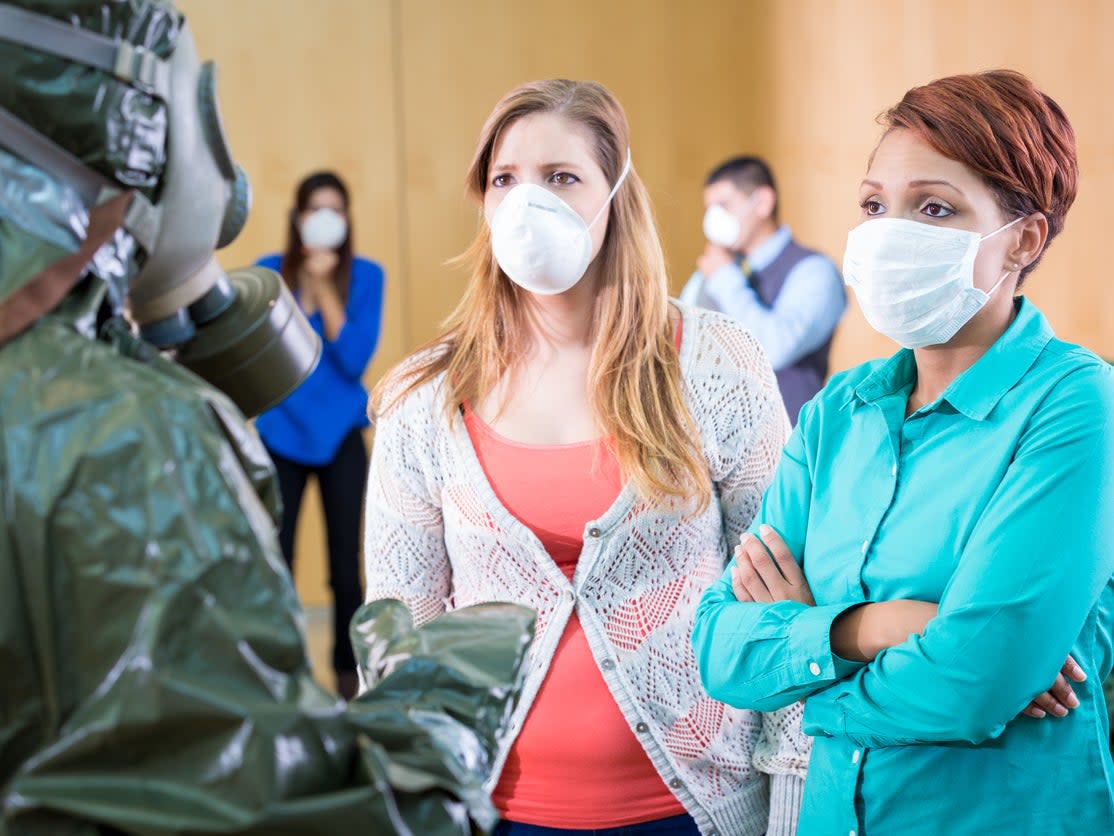World facing ‘acute risk of devastating disease pandemics’ which would kill millions, WHO warns

The world is facing the growing risk of a disease pandemic which could kill millions, and critically destabilise the global economy, an international expert panel of scientists has warned.
The Global Preparedness Monitoring Board (GPMB), a new body assembled by the World Bank and the World Health Organisation formed after the west African Ebola outbreak, has said governments must make considerably larger efforts to prepare for and mitigate that risk.
In its first annual report, the GPMB said there is an “acute risk for devastating regional or global disease epidemics or pandemics that not only cause loss of life but upend economies and create social chaos”.
“The threat of a pandemic spreading around the globe is a real one,” the group said in a report released on Wednesday.
“A quick-moving pathogen has the potential to kill tens of millions of people, disrupt economies and destabilise national security.”
“While disease has always been part of the human experience, a combination of global trends, including insecurity and extreme weather, has heightened the risk. Disease thrives in disorder and has taken advantage–outbreaks have been on the rise for the past several decades and the spectre of a global health emergency looms large.
It added: “There is a very real threat of a rapidly moving, highly lethal pandemic of a respiratory pathogen killing 50 to 80 million people and wiping out nearly 5 per cent of the world’s economy.
“A global pandemic on that scale would be catastrophic, creating widespread havoc, instability and insecurity. The world is not prepared.”
The authors of the report called for “willingness and leadership” and said leaders had “allowed a cycle of panic and neglect when it comes to pandemics”.
The report calls for greater investment, for countries to lead by example, to invest and institutionalise responses to pandemics, to “prepare for the worst”, to integrate preparedness into economic risk, and direct funding towards the poorest countries.
While some governments and international agencies have made efforts to be vigilant and prepare for major disease outbreaks since the devastating 2014-2016 Ebola outbreak in West Africa, those efforts are “grossly insufficient”, the report said.
The report cited the 1918 Spanish flu pandemic, which killed an estimated 50 million people. With vast numbers of people crossing the world on planes every day, an equivalent airborne outbreak now could spread globally in less than 36 hours and kill an estimated 50 million to 80 million people.
In the case of a pandemic, many national health systems – particularly in poor countries – would collapse.
Read more
Tackling vaccine fears key to preventing flu pandemics, WHO says
Gene-edited chickens resistant to flu created to stop next pandemic
“Poverty and fragility exacerbate outbreaks of infectious disease and help create the conditions for pandemics to take hold,” said Axel van Trotsenburg, acting chief executive of the World Bank and a member of the panel.
Calling on governments to “heed the lessons these outbreaks are teaching us” and to “fix the roof before the rain comes”, Tedros Adhanom Ghebreyesus, director-general of the WHO, said countries must invest in strengthening their health systems, boost funds for research into new technologies, improve coordination and rapid communication systems, and monitor progress continually.
The WHO also warned earlier this year that another pandemic of flu – which is caused by airborne viruses – is inevitable, and said the world should prepare for it.
Additional reporting by Reuters

 Yahoo News
Yahoo News 
